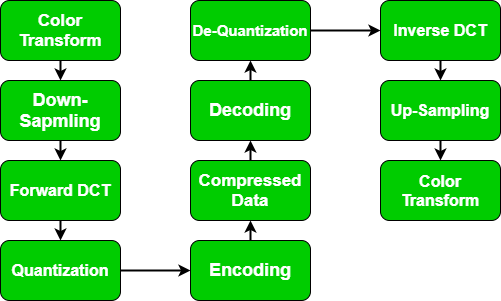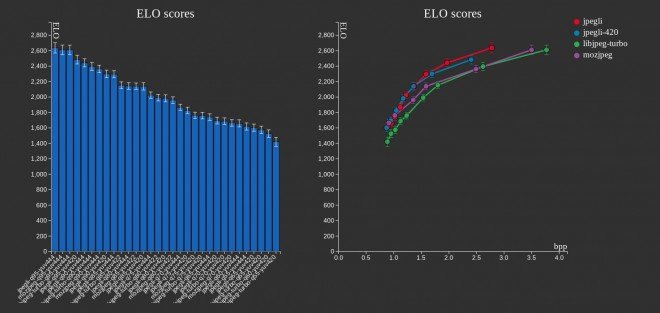We humans are visual creatures. While video is the predominant choice for online information consumption (making up over 80% of all online traffic), images play a significant role in the digital experience. Whether we realize it or not, all the data bandwidth we consume has a cost. Titans of industry like Google have a vested interest in optimizing this cost. Google’s previous effort in the image format space, WebP, didn’t go as planned and failed to replace JPG, PNG, and GIF formats.
So, Google changed its approach and decided to make JPEG better instead of fighting against its ubiquitous status. Enter jpegli – a JPEG coding library that contains both an encoder and a decoder. The most important aspect is that the Image encoder and decoder comply with “the original JPEG standard and its most conventional 8-bit formalism.” In simpler terms, images encoded using jpegli are compatible with existing decoders like your browser or image viewer.
While we won’t pretend to understand the “black magic” Google is using in uses in jpegli,elease, it “uses a saysaptive quantization to reduce noise and improve image quality. This is done by spatially modulating the dead zone in quantization based on psychovisual modeling.”
However, some of jpegli’s outlined benefits are easier to grasp. For instance, it compressed images around 35% more than traditional JPEG codecs while preserving their visual quality. This alone is a massive win for online bandwidth. Just think of how much space Google themselves would save in Google Photos by reencoding user content. Additionally, jpegli performs “more precise and psychovisually effective computations,” making images “look clearer and have fewer observable artifacts.” It can also encode images with 10+ bits per component compared to the 8 bits of traditional JPEG coding solutions. This happens in the original 8-bit formalism without breaking compatibility with traditional 8-bit viewers while reducing “visible banding artifacts in slow gradients.” Lastly, jpegli is comparable in speed to other coding libraries, so it won’t cost additional computational resources or slow down processes.
Google has already published the complete jpegli source code on GitHub, so anyone interested can check it out and start using it today. For more exciting news and update follow PhoneBoli.


